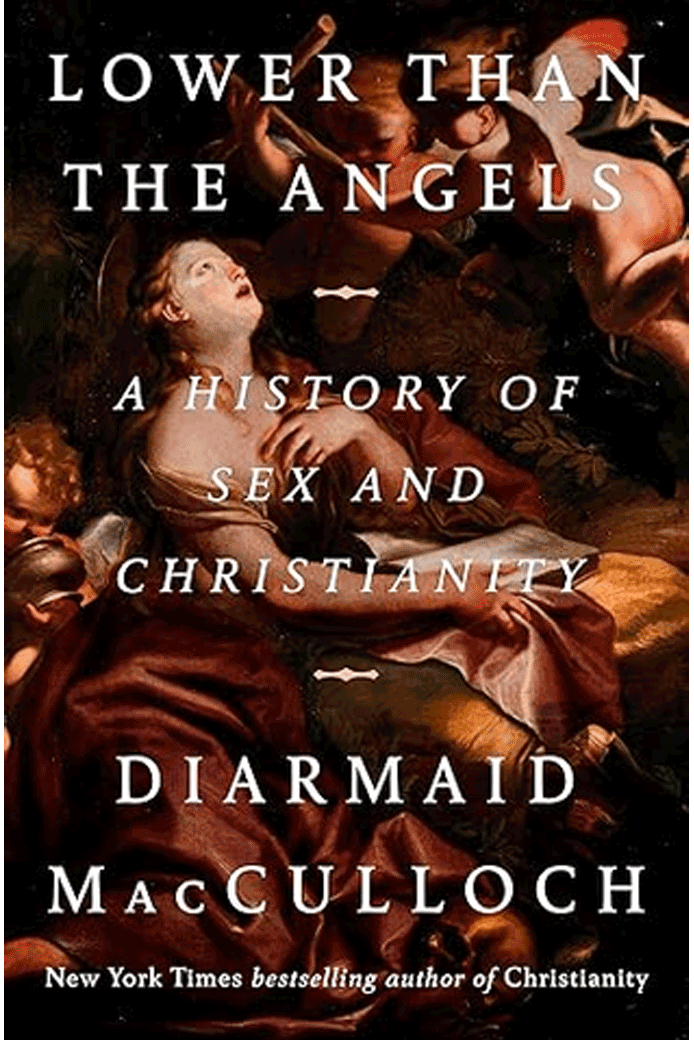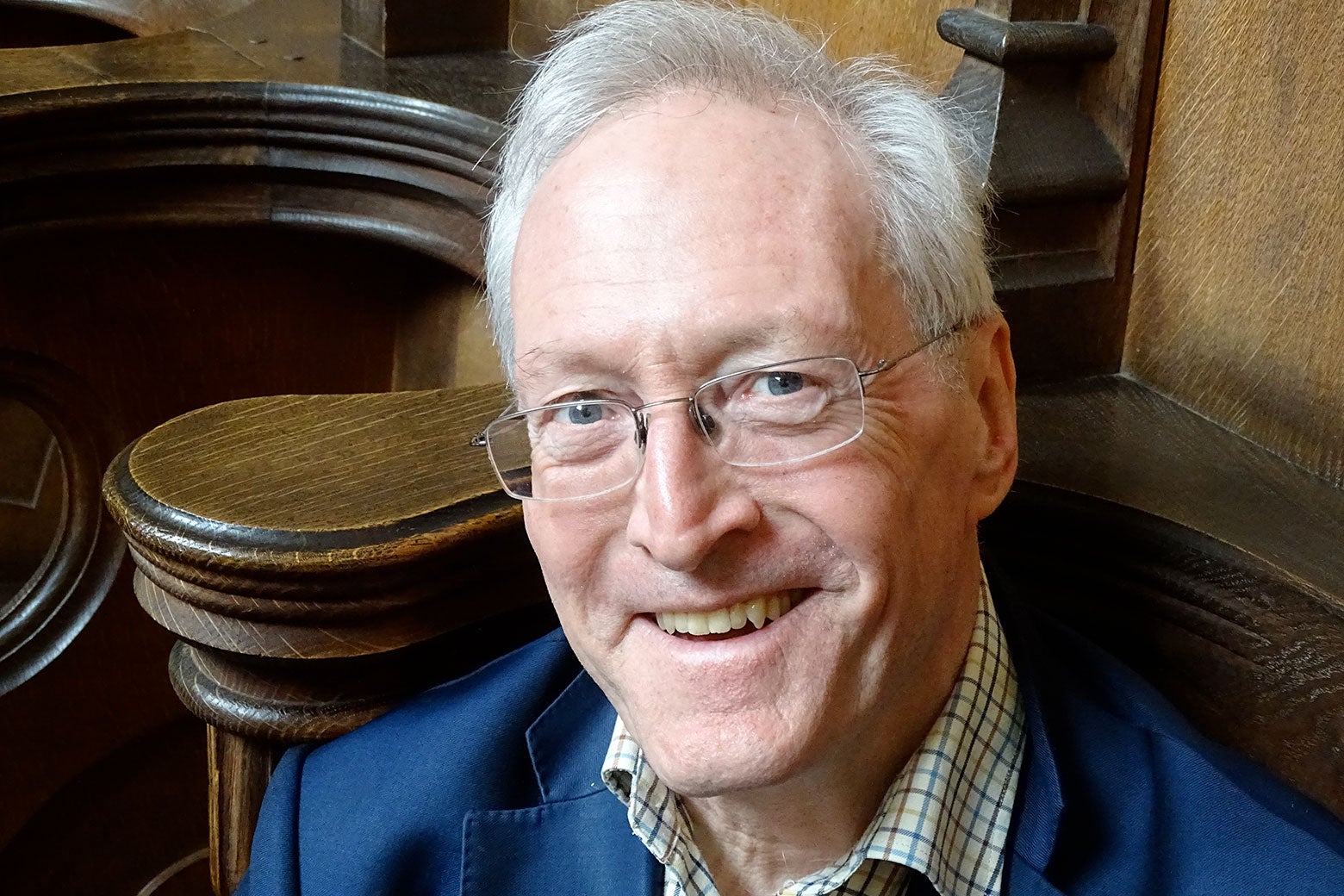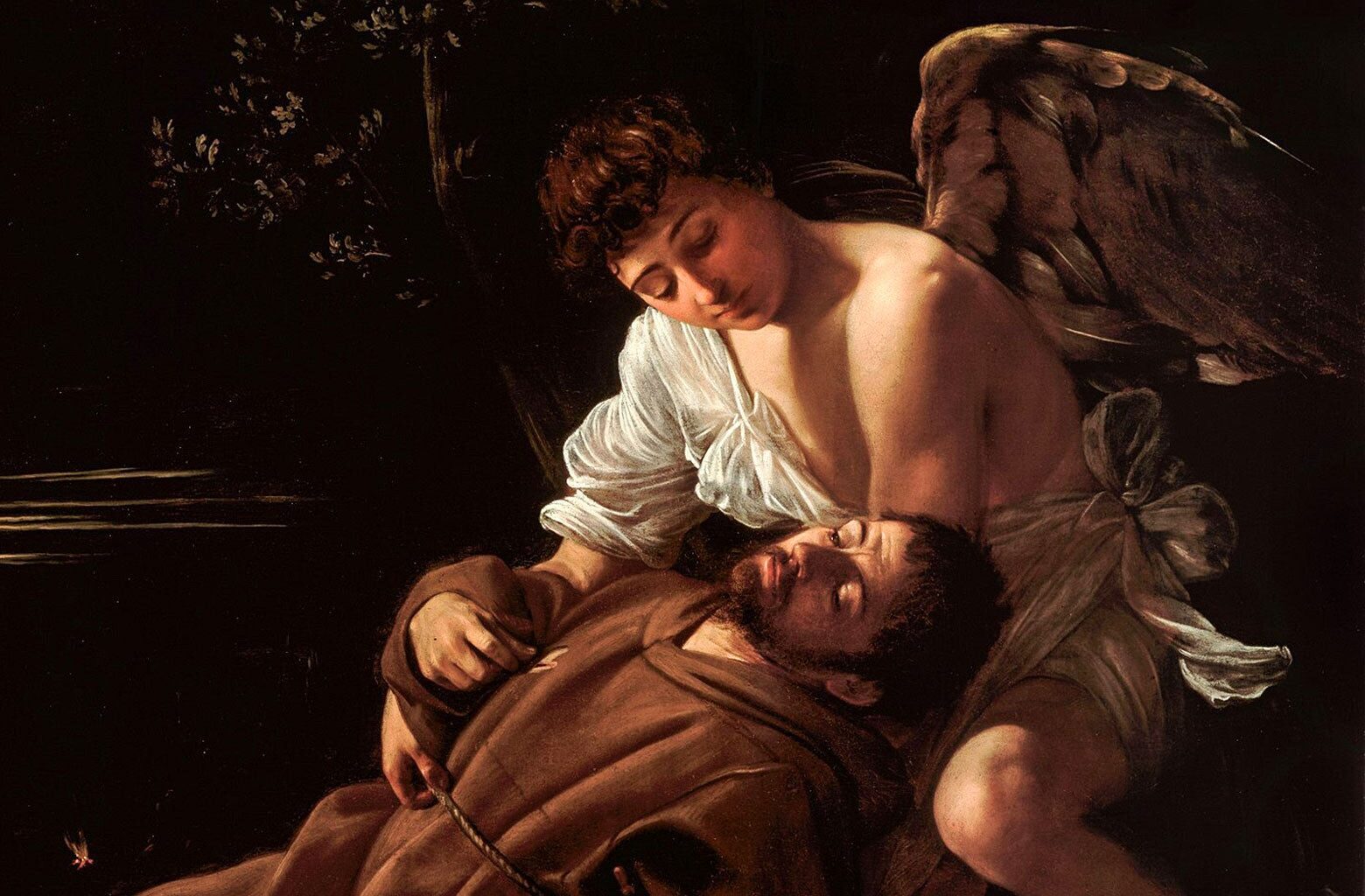Who knew that agricultural advances in 18th-century England and the Netherlands played a crucial role in creating homosexuality as we know it today? Diarmaid MacCulloch did, for one. Perhaps the foremost living historian of Christianity, MacCulloch writes in his new book, Lower Than the Angels, that while same-sex desires and acts have been around forever, the particular conditions of Northern European life in the 1700s fostered the notion that those desires could constitute a fundamental part of the self. For the first time there was “food to spare” for more than just the upper echelons of society, and therefore money to spend on non-necessities. Even quite poor people experienced what was once a luxury: consumer choice. While we in the 21st century enjoy the even greater luxury of grousing about consumerism, for the people of that time, MacCulloch observes, this change “awakened a wider psychological awareness of making choices, ultimately about one’s own personal identity,” such as the identity we now call “gay.” As a result, “a much wider social range of individuals began to decide how to live and who they wanted to be,” and some of them included women as well as gay men; the 18th century also saw the birth of modern feminism. This posed a problem for the religious authorities who were used to telling everyone what to do.

By Diarmaid MacCulloch. Viking.
Slate receives a commission when you purchase items using the links on this page.
Thank you for your support.
Lower Than the Angels: A History of Sex and Christianity—the kind of hefty tome inevitably described as “magisterial” by reviewers—teems with fascinating tidbits and insights like this. MacCulloch, a professor emeritus at Oxford and author of the equally eye-opening and definitive The Reformation: A History, has a command of historical detail that would be intimidating if his writing weren’t so genial and witty. His book encompasses not only Western Christianity, but also the Orthodox churches and today’s robust, if often dismayingly conservative, Pentecostal communities in Africa and Asia. MacCulloch’s perspective, to put it mildly, is Olympian, with a distance that explains the worldly, amused approach he takes to a topic that gives most people “one reason or another for being in a rage.” Rest assured, he tells his readers, that “this book will serve as a receptacle for an impressively contradictory range of furies.”

Diarmaid MacCulloch
Barry Jones
Not that MacCulloch rages himself, though he’s occasionally moved to dismay by the many cruelties, from petty to gruesome, Christians have inflicted in the name of religion. After surveying the past 2000 years, he writes, “there is no such thing as a Christian theology of sex. There are multiple Christian theologies of sex, many of which have over two millennia been downright contradictions of each other.” When religious authorities attempt to ground their directives in tradition—be it admonishing couples to have more kids or prohibiting abortion—they rarely understand the history they cite.
No example from the early history of the religion demonstrates this more clearly than two Christians in second-century Alexandria. The first was an unnamed young man who, as recounted by the philosopher Justin Martyr, petitioned Roman authorities for permission to castrate himself to demonstrate his commitment to chastity. The second is Epiphanes, who before he died at 17 viewed “conventional marriage as a confidence trick designed to protect property rights” and argued that “it should be replaced by arrangements for communal sexual activity alongside a general communalism.” Each of these two Alexandrians, living in the same city in the same century, could find some support for his values in the collection of documents known now as the New Testament. Yet to the contemporary reader, the first young man sounds demented, while Epiphanes sounds like he’d fit right in at employee-owned cafe in 21st-century Seattle. (In fact, self-castration was a more popular Christian practice in their time than communal sex.)
In addition, neither, if he had tried, could have found either a clear prohibition against or a condonement of sex between members of the same gender, because this was a subject Jesus never discussed on the record. Furthermore, the Bible, which MacCulloch emphasizes is “a library, not a book,” was the product of two patriarchal cultural traditions, Greek and Judaic, and all of it was written by men, as was the vast majority of Christian scholarship until fairly recently. To glimpse the experiences, practices, and beliefs of early Christian women, the contemporary historian can only look through a glass darkly.
MacCulloch is particularly alert to the way questions of sexual behavior intersect with matters of power. Perhaps the most enduring controversy in the first 12 centuries of the faith was over the merits of celibacy. For several of those centuries, most Christian priests were married, as was the custom of many officials in the religions of the ancient Mediterranean. Polygyny—or multiple wives living with a single husband, a term MacCulloch prefers to the less specific “polygamy”—was also common in wealthier families. Despite this background, the conviction spread among Christians that virginity made a person closer to God, inspired in large part by reverence for the Virgin Mary and by Jesus’ own apparent virginity. Particularly devout laypeople chose to live in celibate, ascetic communities, the forebearers of monasteries and convents. These groups, MacCulloch writes, constituted “a direct challenge to the biological family that was the foundation of mainstream society.” Some of these groups even included members of both sexes, a practice called syneisactism—although the church hierarchy considered this both risky and show-offy.
No wonder Lower Than the Angels is so long. The history of sex and Christianity is essentially the history of Christianity itself.
It wasn’t until the Second Lateran Council in 1139 that celibacy became mandatory for Catholic priests. While this decree perplexed and even offended some outsiders, it had several advantages. One, MacCulloch writes, was to prevent the establishment of powerful clerical dynasties and to “defend clerical property: clerical marriage and the ties of paternal love expected of any family might disperse land and goods given to the Church.”
But it was just as important to set the clergy apart from the laity, exalting them as authorities whose well-guarded powers and superior holiness were made manifest in their sexual purity. As one defender of this rule put it, “Who is so stupid as not to be able to consider lucidly that the life of those I call upon to bless my house ought to be different and more elevated than mine?” Some particularly pious laypeople sought to emulate the spiritual state of the priesthood by engaging in chaste marriages or refusing marriage entirely—which was the easiest way for an early Christian woman to attain sainthood, provided she was martyred in some ghastly way for her recalcitrance.
As one historian put it, “a clerical celibate elite requires a copulating laity.” Otherwise, you begin to run out of congregants. Laypeople were encouraged by church authorities to marry and procreate, but many were still troubled by the notion that even married sex was sinful. One of the running jokes of Lower Than the Angels is MacCulloch’s frequent needling references to St. Jerome, a fourth-century theologian who lived for a few years as a hermit in the Syrian desert before going on to minister to a lot of prominent and affluent Roman women. Jerome was “no friend to sexual activity of any sort,” according to MacCulloch, and in particular admonished his widowed patronesses not to remarry. Marriage was like “unwholesome food,” Jerome told them, and “now that you have relieved your heaving stomach of its bile, why should you return to it again … like a dog to its vomit?”
Rejection of the clerical celibacy mandate was one of the cornerstones of the Reformation, along with repudiation of the cult surrounding the Virgin Mary, which in some corners had gone so far as to assert that she, as well as Jesus, was immaculately conceived. (As MacCulloch points out, Marian devotees had to deliberately ignore biblical references to Jesus’ siblings, which suggested that even Mary herself didn’t stay a virgin for long.) Protestantism has a tendency to splinter into sects over bitter doctrinal disputes, and was far from immune to extremism in its biblical fidelity. One fanatical leader of the 16th century, John of Leyden, barricaded himself and his followers in the German city of Munster, where they instituted compulsory polygyny (the compelled were girls as young as 11) after the model of the Old Testament patriarchs, outlawed money, and banned private property. When a Catholic army finally retook the city, John and two other sect leaders were tortured to death and their bodies displayed in iron cages that still hang from the exterior of the church in the town center.

Molly Olmstead
Pope Francis Changed a Lot About the Church. One Thing Cannot Be Reversed.
Read More
Lower Than the Angels goes on to chronicle that surprising emergence of an 18th-century gay (male, urban) subculture that “represented a coherent self-recognition, rather than the miscellaneous collection of deviant acts that Western Christianity labelled sodomy.” The public response to this, according to MacCulloch, ranged “from punishment in court to a good deal of popular collusion and sympathy, with sensational journalism in a middle position.” There was also during this period what MacCulloch describes as a “masturbation panic,” which he regards as “yet another symptom of the age of individual choice, for few pursuits are more shaped by individual decision than masturbation.” Immanuel Kant (who probably died a virgin) went so far as to argue that “self-abuse” was worse than suicide. At the same time, a chain of gentlemen’s clubs in Scotland provided members with the opportunity to gather together for “enthusiastic and onanistic contemplation of females hired for the spectacle,” a recreation MacCulloch describes as “programmatically heterosexual though inescapably homosocial.”
Provocatively, MacCulloch also sees the explosion of evangelism, with its dramatic and emotional narratives of spiritual revelation and rebirth, as “recognizably part of the same newly forming world of choice that produced such phenomena as the emergence of homosexual identity and the drive for personal privacy.” In place of the automatic infant baptism of Catholicism, evangelism, with its adult baptisms, constituted “a personal decision to turn to Christ and accept him as one’s personal savior. To make a choice was powerfully to assert individual self.”
-
He Was Supposed to Be the Next Brando. Instead, He’s the Next Nicolas Cage.
-
An Unlikely Song Is Driving Boomer Dads Absolutely Bonkers. We’re Only Now Beginning to Realize How Important It Is.
-
One of Netflix’s Most Popular Shows Just Ended by Turning the Tables on Its Fans
-
Could Nathan Fielder’s Trick for Preventing Plane Crashes Really Work? I Asked My Pilot Boyfriend.
This notion reframes the American evangelical obsession with sexual and gender transgression as a battle for the meaning of self-determination in a country obsessed with individualism. That “choice” became the rallying cry of the American abortion rights movement—although MacCulloch, in an atypical lapse, doesn’t mention it—can be no coincidence. As a Briton, this issue may not feel immediate to him, but even he can see that sex “has become the most salient issue for identity in the Republican Party.”
No wonder Lower Than the Angels is so long. The history of sex and Christianity is essentially the history of Christianity itself. Sex is entangled in seemingly every major power struggle in the faith, whether it be the ordination of women as clergy or the inerrancy of the Bible (with all that polygyny). It saddens MacCulloch—himself a gay man descended from a line of Scottish Episcopalian priests and an ordained deacon in the Anglican church—that today, “throughout the modern world, the most easily heard tone in religion (not just in Christianity) is one of angry conservatism.” He quotes the former Archbishop of Canterbury, Rowan Williams, who argued that the existence of the clitoris, an organ whose sole purpose is pleasure, provides some strong evidence that God just might have “made us for joy.” We’d be a lot more like the angels if we lived as if we believed that.
Get the best of movies, TV, books, music, and more.
